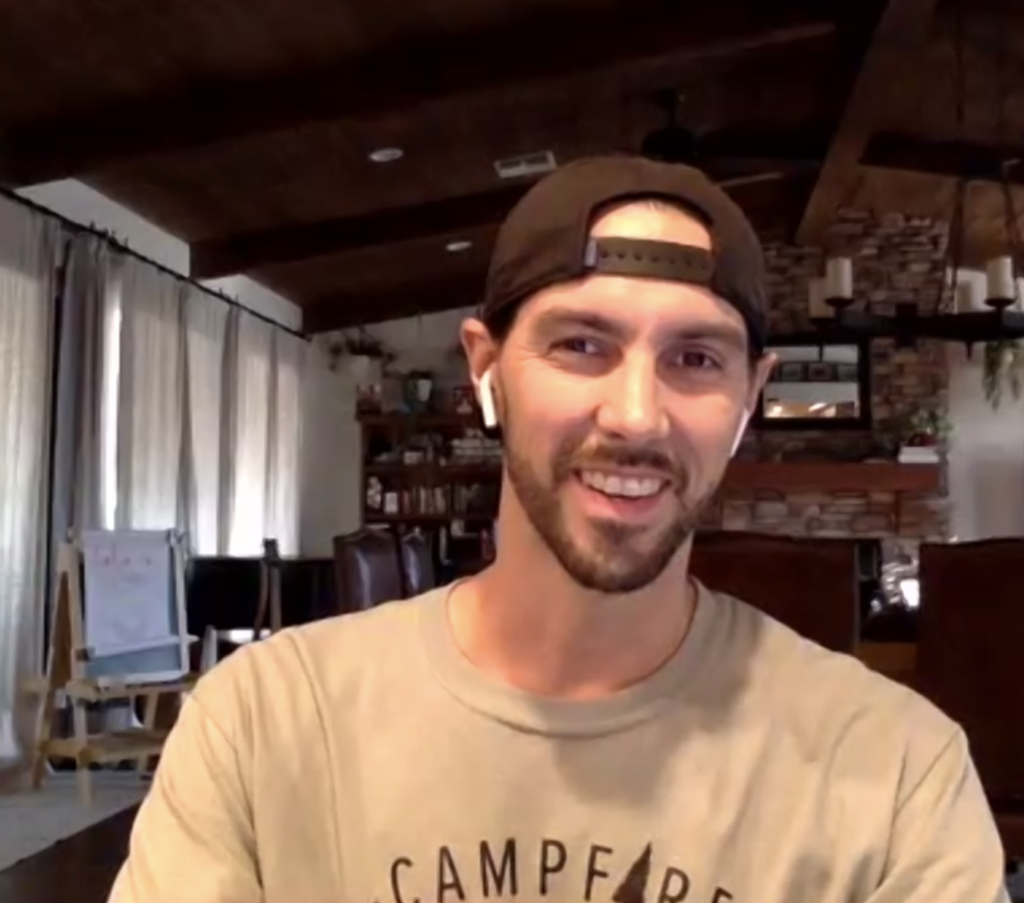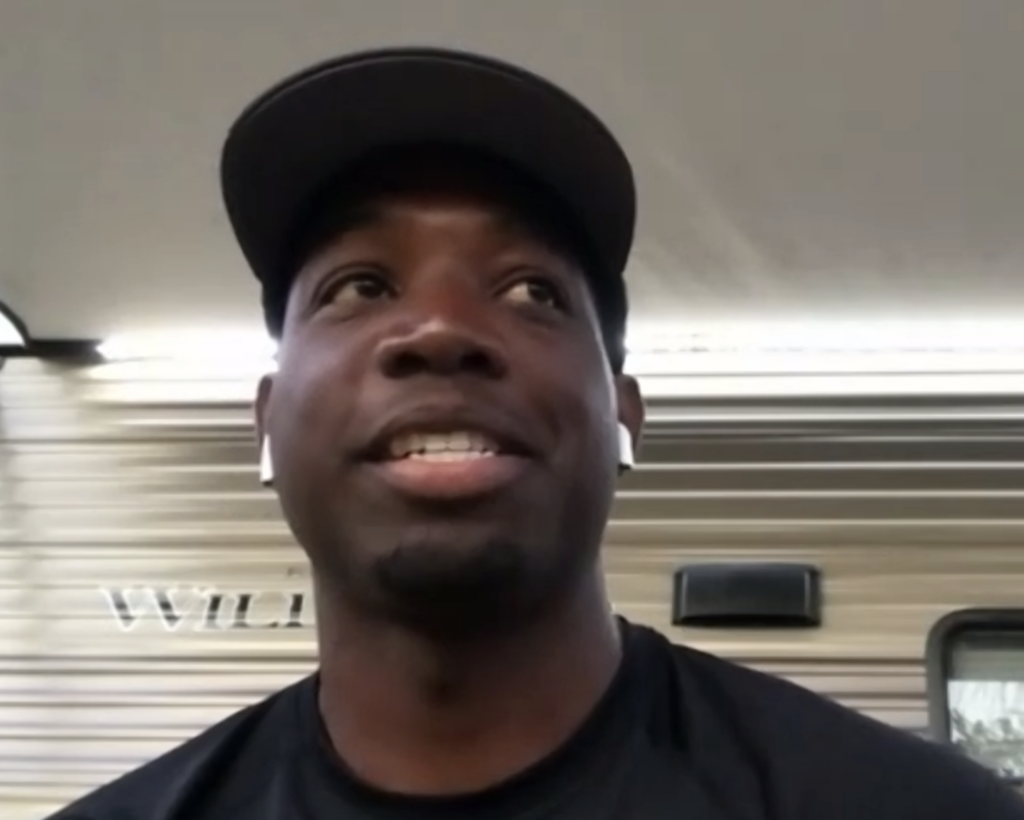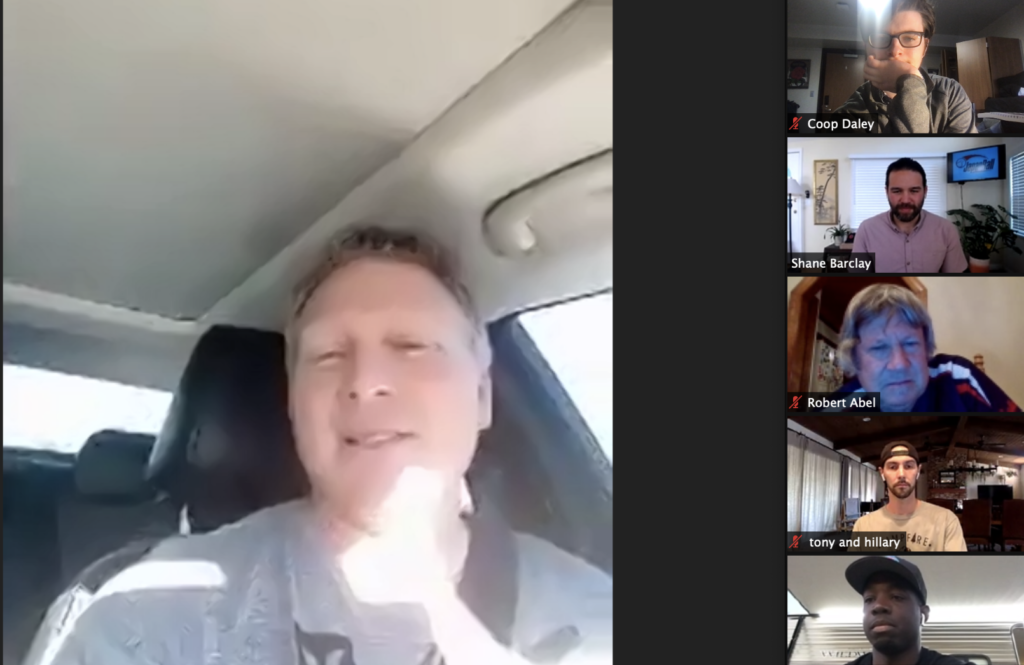Former Yakult Swallows Guiel, Milledge, and Barnette join “Chatter Up!”
To read these stories in full, be sure to check out the full transcript of the call.
One of the more highly debated topics in our JapanBall community is which Nippon Professional Baseball (NPB) team is the best to cheer for as a fan. Maybe it’s the Chiba Lotte Marines, whose success under gaijin kantoku (foreign manager) Bobby Valentine won the hearts of baseball fans on both sides of the Pacific. Perhaps it’s the Hanshin Tigers, whose die-hard fanbase, along with playing in the legendary Koshien Stadium, make them a must-see for any true baseball fans. While not the most famous or successful NPB organization, one team almost always seems to sneak its way into the conversation: the Tokyo Yakult Swallows. The Swallows’ passionate, umbrella-toting fanbase and cozy, historic ballpark located in the heart of Tokyo combine to make Meiji Jingu Stadium a fun outing for anyone visiting Japan.
The sentiment is not just shared among fans, as former Swallows’ import players have reflected well on the organization, saying Jingu Stadium was one of their favorite places to play and that the organization treated its foreigners extremely well. On May 7, three of these players – Lastings Milledge, Aaron Guiel, and Tony Barnette – joined JapanBall’s “Chatter Up!” to discuss their fond memories of the club, including their time playing at Jingu, and what made the experience so unique:
“Yakult is a great organization to play for,” Guiel said. “They’re very player friendly, they are very kind and they’re great to play for as a foreigner… that experience for me with Yakult, comes with the people that were there…but also with the stadium. Jingu was so unique with it being outdoor[s], the location right in the heart of Tokyo… [the way the fans are,] they’re energetic, they’re positive, always, no matter if we had ups and downs, no matter how we were performing, as long as we gave our best, those fans were always behind you… Between the fans, the city, and the stadium and the team, for me, I feel blessed that I get an opportunity to play there, because I also know that other players that I’ve talked with [in] organizations didn’t have that same experience. So I just consider myself very lucky.”
The three players all discussed their recruitment by Yakult, with each of them having a different experience than their peers. Milledge, who had spent time playing in Major League Baseball (MLB), took the more “well-known” route of taking the opportunity to help himself and his family get a new start in Japan, while Guiel and Barnette instead came to the team after spending significant time in the minor leagues:
“For me, it was a big decision at the moment,” Barnette said. “I was right out of AAA at 26, and through a string of text messages from a teammate of mine… had texted me saying, ‘Hey, there’s a Japanese agent that would like to get into contact with you.’ That happened to be Don Nomura, who spoke with my agent at the time, they just kind of met. At that moment… I was like, ‘Man, I’m going to get picked up, I’m going to the big leagues, it’s happening. Japan can wait a little bit.’ Rule Five came and went, and my confidence took a quick turn. Japan became really real at that moment, I was facing down the barrel of… ‘let’s go back to AAA, and maybe make it, I’m still on the rookie contract making peanuts, or let’s take an opportunity and go to Japan, and possibly springboard my career a little bit more, let’s go play. Let’s get on a bigger stage…’ at the time, as a 26-year-old, I thought I was giving up a lot more than I knew, and it was a big decision for me at the moment. But you know, looking back, I sure am glad I decided to make that jump.”

As per usual for former NPB import player “Chatter Up!” guests, the three each discussed the shift to playing in NPB, and all confirmed that mentality played a huge role in their success in Japan. Each shared their own story of transition, whether it was being taken out in the third inning and having to recognize their own role within the team’s wa (harmony), or having to conform to odd defensive schemes, like playing with the outfield in with runners in scoring position. All three of them, however, had no regrets about the transition, and noted that it made them better players in the long run:
“I played at the pinnacle of the sport, so to kind of re-position to where it’s like, ‘I’m in rookie ball again,’ that was tough,” Milledge said. “It’s their way, it’s the way that they want you positioned, not the way that Tony Barnette wants me to play. It’s the way that my manager wants me to play… I had to learn how to communicate with what they wanted me to do, a little bit of my sauce mixed together, to come up with the right formula, that was tough… but we did it, and I learned how to do it. It took a year plus, but that’s the hardest thing, doing it their way… It was a back-and-forth thing, and not bad in any means, it was just more baseball dialogue… I didn’t have that body of work, I didn’t know these guys like that. But it was just the dialogue going back and forth, and in the language barrier, it was just tough. But, in the end, we got it all handled, and it was good communication out of that, but it is an adjustment, man, it’s an adjustment.”

In the transition, the three all found themselves falling in love with the Swallows’ organization, and discussed how they believe the wa experienced at Jingu Stadium is different than in the rest of NPB. Each player fondly remembered experiences they believed to be unique to the team, whether it was how they communicated with other players or how the coaching staff tried to hone their best skills. In doing so, each player made a lifelong connection with the team, which still resonates with them today:
“I don’t have a view of what it’s like to be in the Giants’ clubhouse, or the Hanshin Tigers’ clubhouse, or the Hiroshima clubhouse, I don’t have that feel,” Barnette said. “All I know is what Yakult offered me, what kind of support they showed me with the people that they employed… When you fill an organization with people that care, and people that try, the result might not always be a win on the field, but behind closed doors, when you reach back the curtain, there’s an entire organization and entire clubhouse and group of guys that genuinely care about each other getting through the day healthy, and what can we do together to hopefully chase that win tomorrow. So I think it touches just on Yakult, the people that they bring within the organization, how much they care about the people around them as well. That’s the feeling I got from it when I was there. My last year there, we won a championship– we didn’t win the whole thing, the whole Japan Series– but we won the Central League, and that was a big deal for us, and that was a special moment for that team and that organization; and myself personally.”
In addition to the sentimental discussions, the former Swallows each had memorable stories to tell about their time in Tokyo, including Milledge eating at McDonald’s in full uniform after a game in an effort to break a slump, talking to themselves in the outfield before the pitch was even thrown, or what they believed what was the most difficult part of the transition – learning the Tokyo subway.
To hear these stories in full, be sure to check out the full transcript of the call, or watch the full video for yourself on our YouTube channel.

